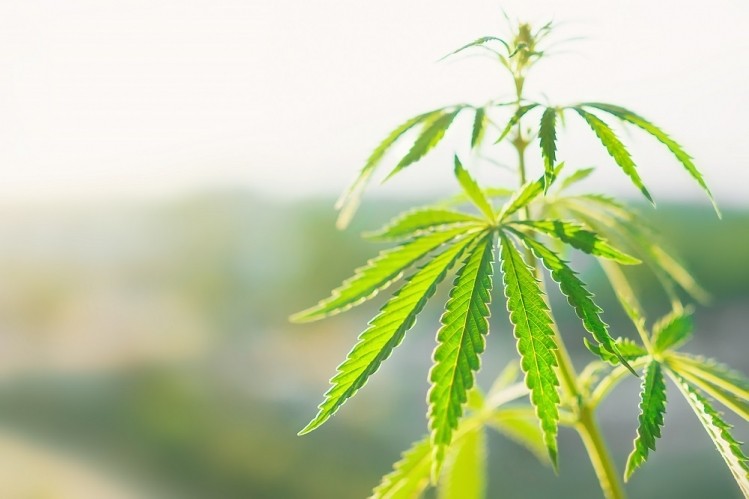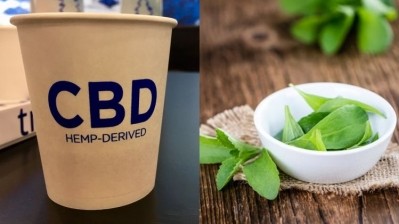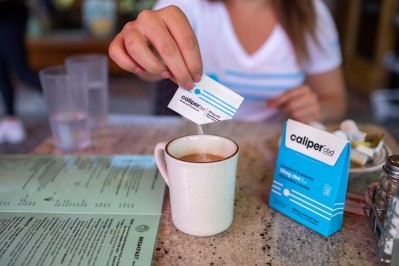The FDA issues a stern warning on CBD... but does it signal a change in approach?

Speaking to FoodNavigator-USA after the FDA warned 15 companies about “illegally selling products containing cannabidiol,” and threated “legal action, including product seizure and/or injunction,” William Garvin, shareholder at Buchanan Ingersoll & Rooney PC, said: “It increases the risk that FDA might take enforcement action against you.
“While it is true that FDA has been consistent on the illegality of CBD in foods and dietary supplements, FDA previously had greatly restrained its enforcement action in this space and today’s announcement is a departure from that enforcement position with much stronger language.
“This suggests a serious change in enforcement priorities for the agency.”
So what happens next? “I expect there will be a lot of pushback from consumers, companies, and politicians against FDA on this issue,” predicted Garvin, who expects to see “a lot more lobbying from companies and consumers that support CBD… to see if they can get Congress to support legislation to resolve these FDA issues.”
‘FDA simply wanted to re-emphasize what it’s been saying all along’
However, other legal experts we contacted played down the FDA's announcement, with Brian P. Sylvester, special counsel at Foley & Lardner LLP, telling us the agency "simply wanted to re-emphasize what it’s been saying all along: Under current law, it is currently unlawful to add CBD to food or dietary supplements, and that FDA continues to have concerns around the safety of CBD."
The warning letters all focused on firms making unsubstantiated disease claims, he observed. "I don’t think that practically speaking it changes FDA’s enforcement posture. But I think the FDA is increasingly concerned about the safety of CBD."
But by saying CBD is not GRAS, is the FDA effectively closing off the GRAS affirmation pathway for CBD, as UNPA president Loren Israelsen suggested to our sister site NutraIngredients-USA?
"Not exactly," said Sylvester. "FDA simply stated that it is not aware of any basis to conclude that CBD is GRAS among qualified experts for its use in human or animal food. It’s not inconceivable that, in the future, data could be brought to bear before the FDA to support GRAS status."
Aside from one prescription drug [Epidiolex] approved to treat two pediatric epilepsy disorders, says the FDA, CBD products have “not been approved by the FDA and we want to be clear that a number of questions remain regarding CBD’s safety, including reports of products containing contaminants, such as pesticides and heavy metals.
“There has been no FDA evaluation of whether these unapproved products are effective for their intended use, what the proper dosage might be, how they could interact with FDA-approved drugs, or whether they have dangerous side effects or other safety concerns.”
In comments that immediately provoked pushback from CV Sciences, which has self-affirmed that its hemp extract is GRAS, the FDA added that it “cannot conclude that CBD is generally recognized as safe (GRAS) among qualified experts for its use in human or animal food.”
‘FDA still keeps the letters aimed at the fringe companies’
Todd Harrison, partner at law firm Venable, in turn, said that the announcement was not the bombshell some commentators have suggested it is: “I do not attach any great significance as FDA still keeps the letters aimed at the fringe companies, although it will still continue to have a chilling effect on major outlets. With that said, FDA knows it will not get voluntary compliance based on these warning letters and in many ways shows the agency’s tenuous position.”
So does this change anything on a practical level? “It does not,” argued Harrison. “There is not anything new here but a simple recitation of the law that is required for all ingredients. Again instead of complaining, FDA is not being fair. Submit the safety data and take the agency to task on its questionable position of permissibility. Win the safety argument and the preclusion issue disappears.”
So what does he expect will happen next? “At some point, someone will submit [a GRAS determination or NDI notification to the agency] and I believe the agency will back down or face Congress’ wrath,” he predicted.
Burying your head in the sand is simply not an option any longer
He added: "Given the filing of numerous class action lawsuits over the presence of CBD in dietary supplements, it is time to address the issue of preclusion head-on with FDA. Waiting for the agency to act the way the industry wants it to act is simply not going to happen. It is time to file an NDIN and make the agency deal with the issue of preclusion.
"Otherwise, we will continue to live in limbo and be vulnerable to unfounded class action lawsuits. Burying your head in the sand is simply not an option any longer. The fact is full and broad spectrum hemp extracts are not the same as Sativex or Epidiolex and the agency’s pronouncements on this issue strains credulity."
"This is a significant, concerted and highly orchestrated effort by FDA to put the brakes on the CBD market."
Loren Israelsen, president, United Natural Products Alliance
Why issue the letters now?
As to the timing of the announcement, Jonathan Havens and Lauren Farruggia at law firm Saul Ewing Arnstein & Lehr LLP, noted in a blog post that given the uncertainty over how the yet-to-be-confirmed FDA commissioner Dr Stephen Hahn will approach CBD, "It is possible FDA pushed out this new round of enforcement and guidance ahead of Hahn joining the Agency as a way to preserve the FDA's position."
Havens and Farruggia also noted that in "a potential foreshadowing of expanded enforcement, the agency indicated that, in addition to continuing to pursue such products [making egregious and unsupported health claims], it will also monitor the marketplace for any product that poses a risk to public health, including those with dangerous contaminants (pesticides, heavy metals, THC) and those marketed to vulnerable populations such as the elderly, children, adolescents, pregnant, and lactating women."
Steve Mister: ‘FDA’s inaction for the past year has facilitated an unregulated marketplace’
Steve Mister, president and CEO at the Council for Responsible Nutrition, said the FDA’s “headline-grabbing announcement” had “unnecessarily alarmed consumers,” arguing that the agency had not cracked down on irresponsible players but at the same time had failed to give responsible firms with safety data a clear route to market.

“FDA’s inaction for the past year has facilitated an unregulated marketplace—which is bad for consumers and bad for business. FDA has the authority to mandate recalls, to begin seizures of potentially harmful products, and to issue injunctions, but instead, the agency is choosing to issue tepid warning letters about CBD while the market of poorly made products continues to explode.”
The FDA cites potential adverse effects from CBD, but does not distinguish between the high doses delivered in Epidiolex, and the low levels typically used in supplements, said Mister, noting that the “dose makes the poison.”
‘The agency has repeatedly said CBD must be treated like any other ingredient, but it has refused to do just that’
There are already mechanisms in place to regulate CBD like any other ingredient (NDI notifications, GRAS determinations), he added: “The agency has repeatedly said CBD must be treated like any other ingredient, but it has refused to do just that.
“FDA continues to call on industry to produce safety research for the public docket but to dismiss NDI notifications and GRAS declarations for CBD. It is not too late for FDA to do the right thing: it should explicitly open the dietary supplement lane to CBD and be the ‘cop on the beat’ enforcing the whole range of dietary supplement laws and regulations against those products."
If the FDA does not act soon, he argued, Congress should get involved to “direct the regulator to open the supplement lane to CBD and to police these products with the ample enforcement tools at its disposal.”
NPA: 'Letters to a handful of companies and bureaucratic head scratching helps no one'
Natural Products Association president and CEO Daniel Fabricant, Ph.D, said: “CBD is as common as bottled water in the US, and letters to a handful of companies and bureaucratic head scratching helps no one. It is well past time to bring science into the equation as federal rules require and as the US House of Representatives directed. Safety and consumer protection must come first.”
"The FDA’s November 25, 2019 news release fits in line with its strategy of (1) issuing strongly-worded press releases; but (2) policing only against what it considers truly egregious conduct.
"The release gives an important clue as to what the FDA would consider beyond the pale: 'We remain concerned that some people wrongly think that the myriad of CBD products on the market, many of which are illegal, have been evaluated by the FDA and determined to be safe, or that trying CBD ‘can’t hurt.'
"It is doubtful the FDA will take a more aggressive enforcement role as it works with stakeholders to set a regulatory framework."
Angela Spivey, partner, Alston & Bird
Interested in CBD from a global perspective? Our European counterpart FoodNavigator.com is co-hosting a two-day CBD Global Summit in London, 16-17 March 2020. Get all the details HERE.



















